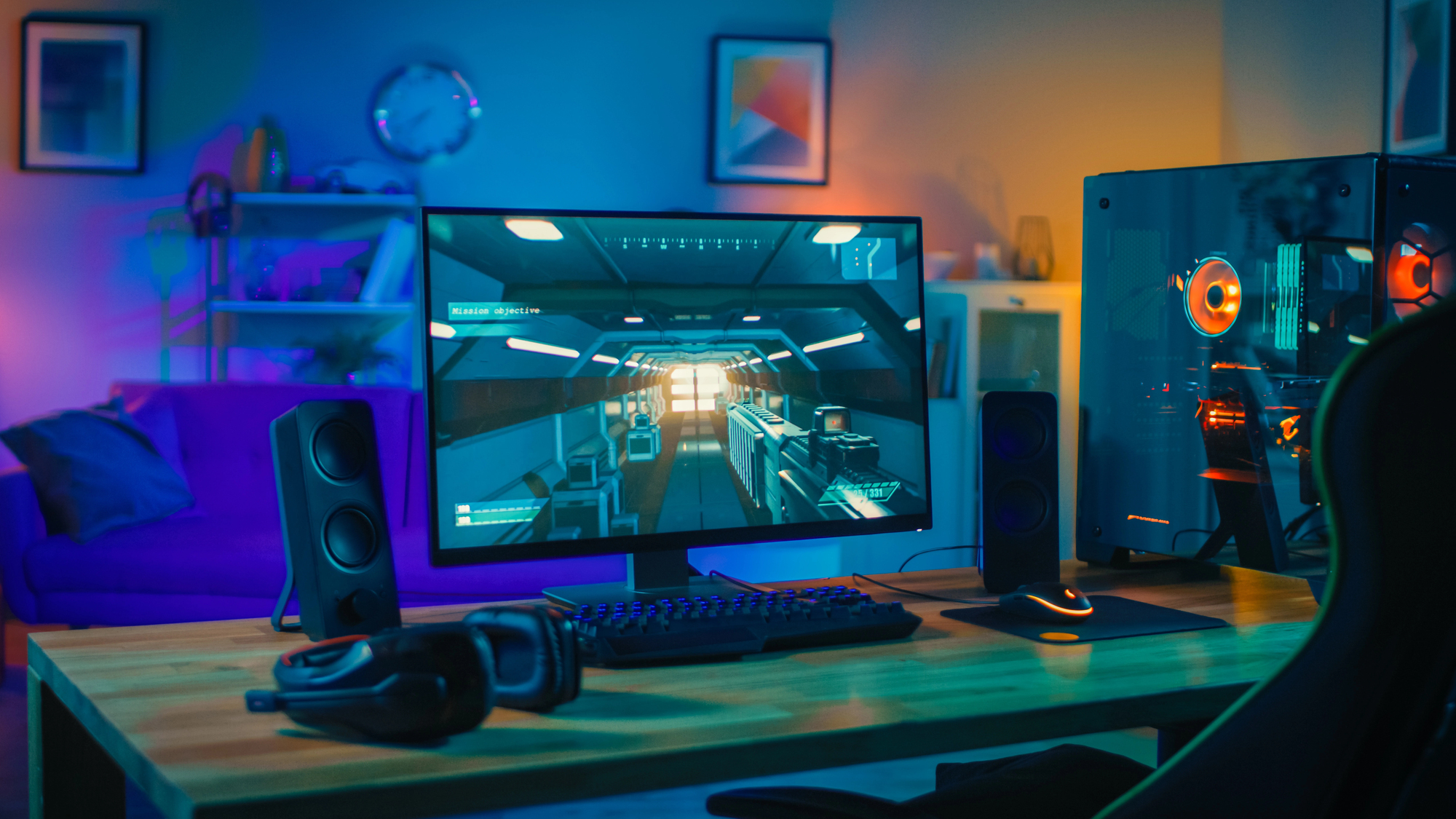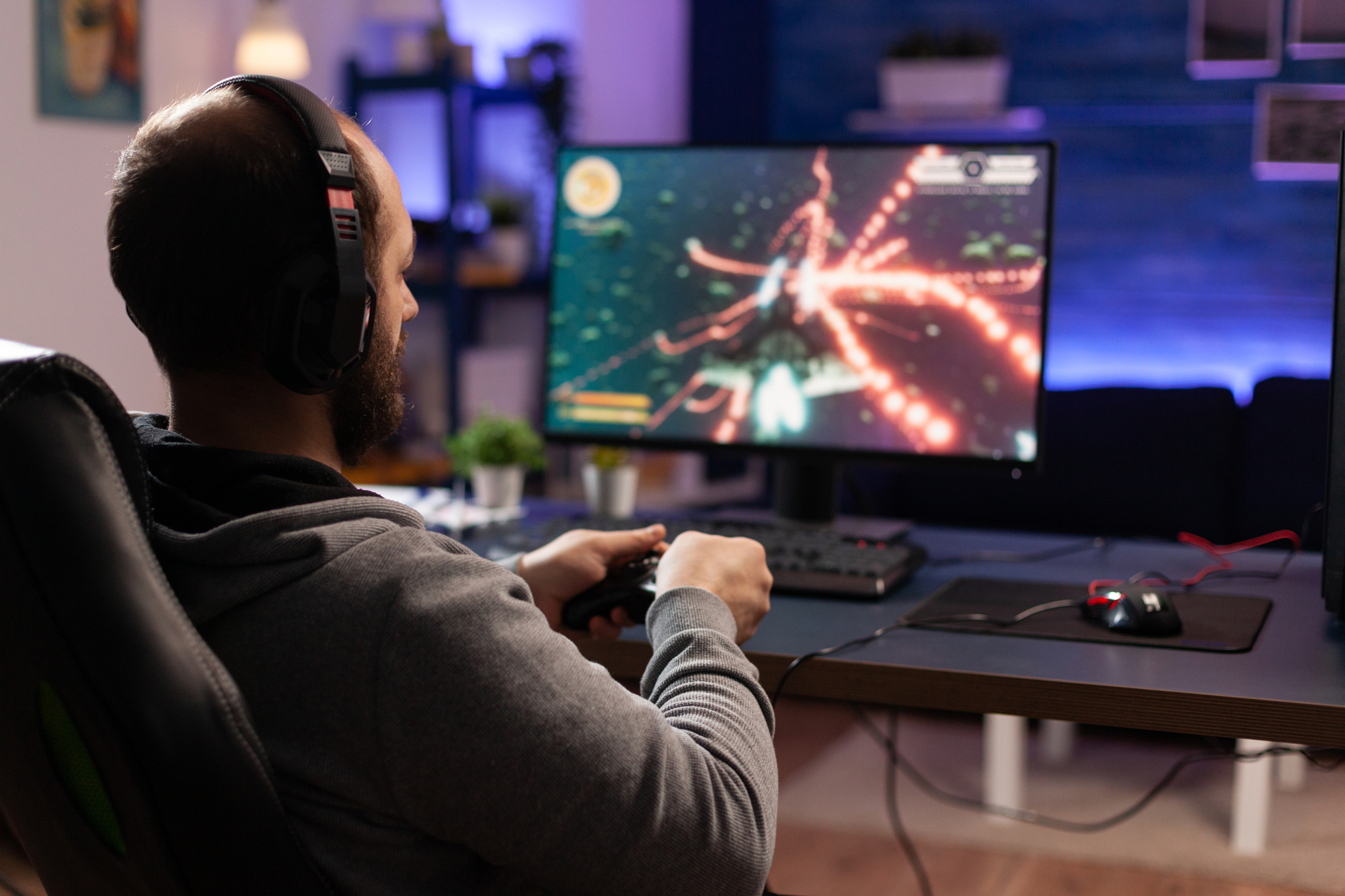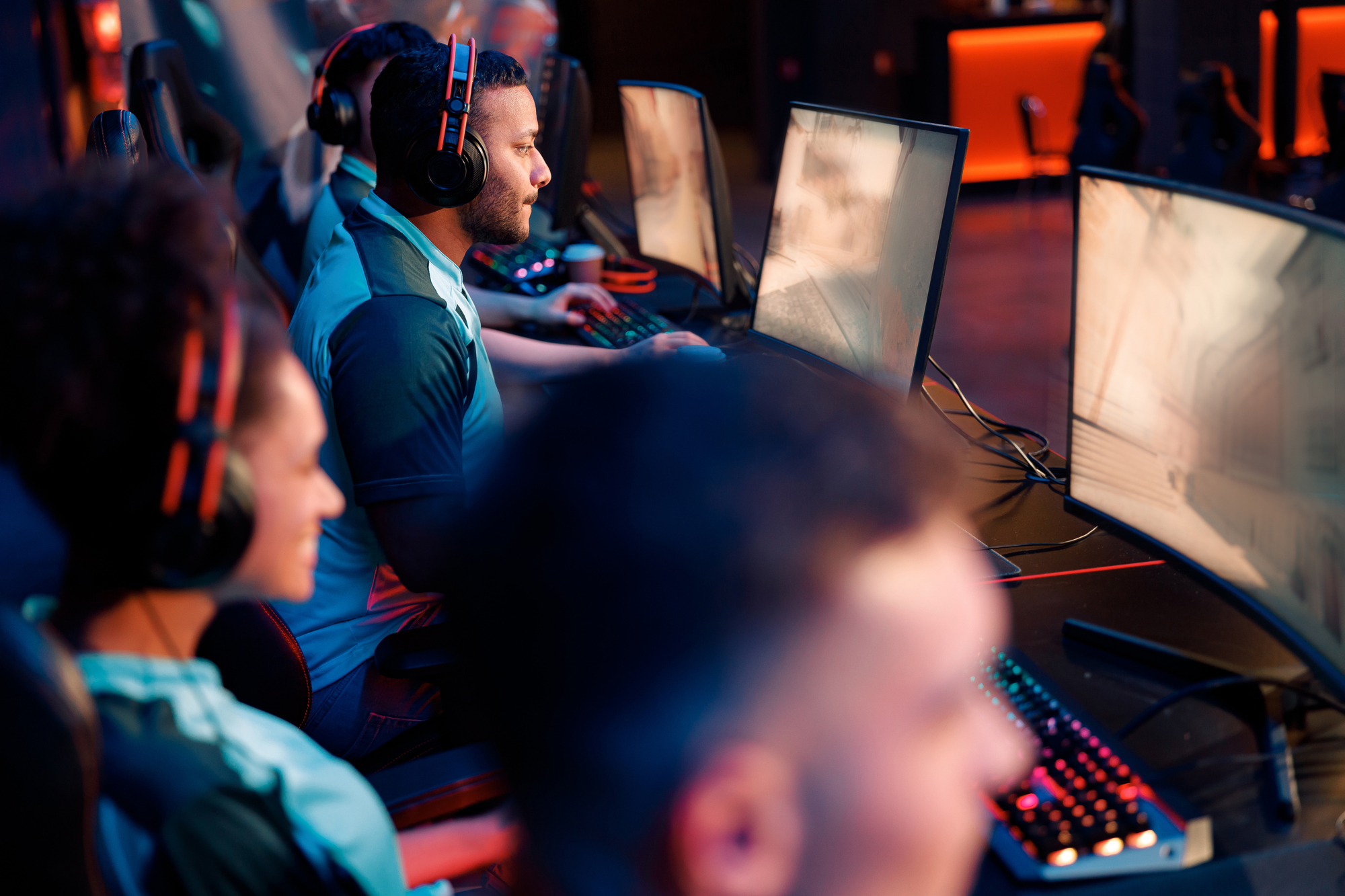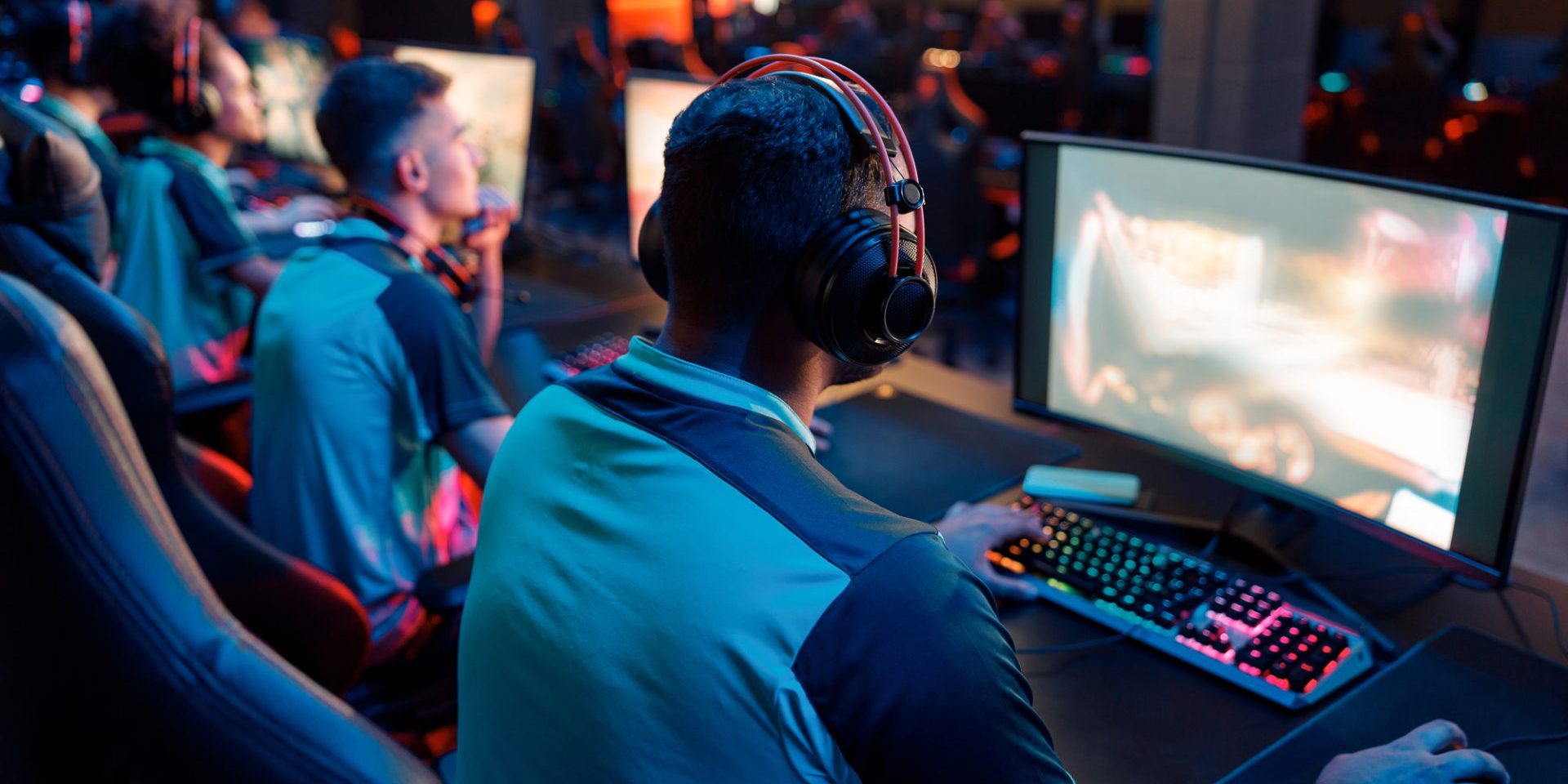
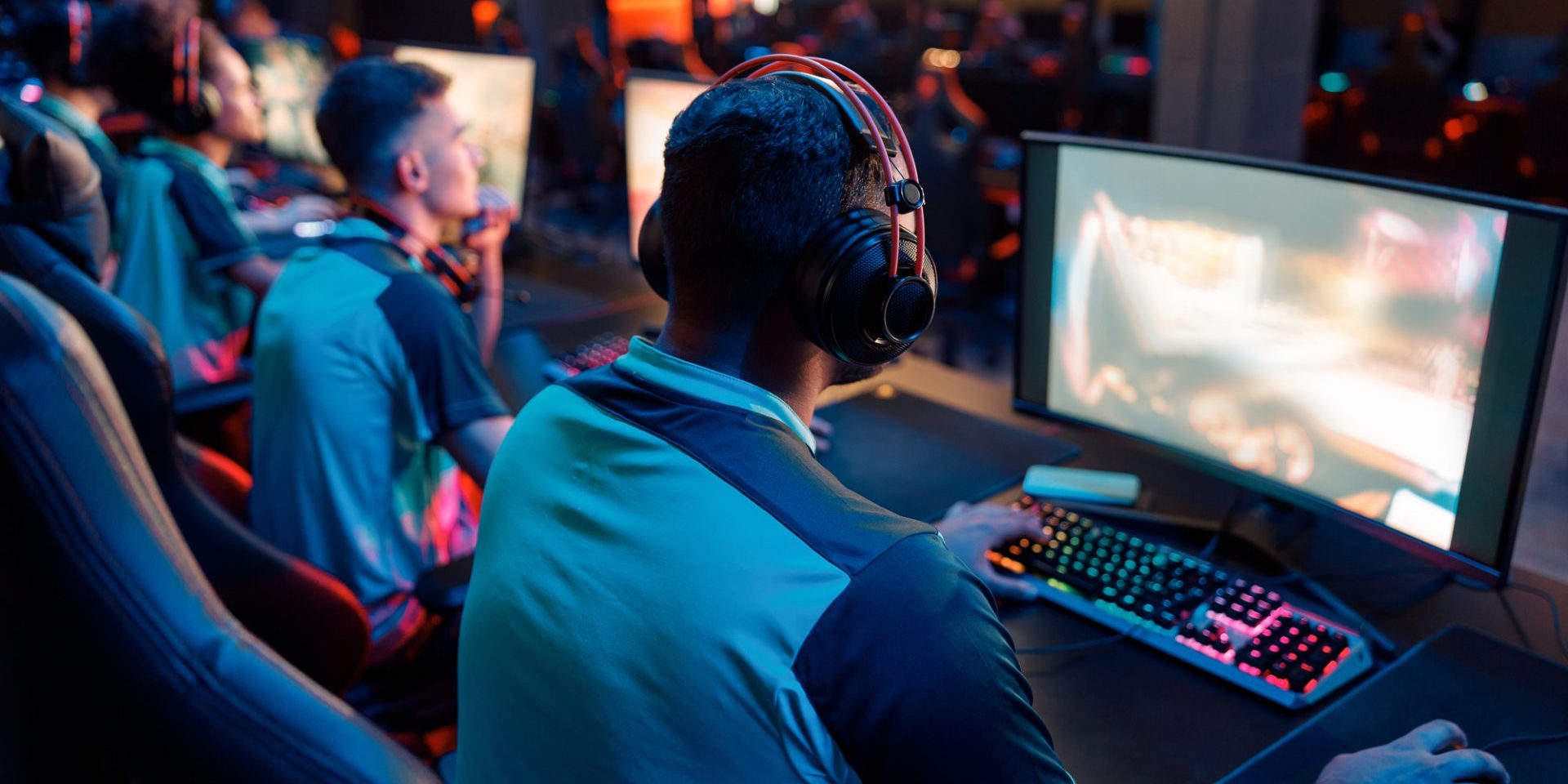
Gaming experiences are evolving rapidly with the integration of artificial intelligence. AI algorithms analyze player behavior, preferences, and in-game choices to tailor content dynamically. This personalization enhances engagement by creating unique adventures for each individual.
AI-driven systems customize gameplay elements, difficulty levels, and challenges based on a player’s skill and style. Non-player characters (NPCs) can adapt their responses and actions, making interactions more realistic and immersive. These AI capabilities allow games to feel fresh and exciting with each playthrough.
The future of gaming looks bright as AI continues to advance. Personalized experiences will likely become more sophisticated, blending player data from multiple games to create even more finely tuned content. As AI technology improves, the line between scripted and dynamically generated gameplay may blur further, offering truly adaptive gaming worlds.
Fundamentals of AI in Gaming
AI plays a crucial role in modern gaming, transforming player experiences and game development processes. It encompasses various technologies and techniques that enhance gameplay, create dynamic environments, and personalize interactions.
Understanding AI and Its Capabilities
AI in gaming refers to computer programs that simulate intelligent behavior. These systems can learn, adapt, and make decisions based on data and predefined rules. AI capabilities in games include pathfinding, decision-making, and natural language processing.
Machine learning algorithms allow AI to improve performance over time. This enables games to adapt difficulty levels and create more challenging non-player characters (NPCs). Neural networks, a subset of machine learning, can generate realistic graphics and animations.
AI also powers procedural content generation, creating vast game worlds and unique items automatically. This technology reduces development time and costs while providing players with fresh experiences.
The Evolution of AI in the Gaming Industry
AI in games has come a long way since its early days. The 1980s saw simple rule-based systems in titles like Pac-Man, where ghosts followed predetermined patterns.
As technology advanced, so did AI complexity. The 1990s and 2000s brought more sophisticated behavior trees and finite state machines. These allowed for more realistic NPC actions and improved game narratives.
Recent years have seen a shift towards machine learning and neural networks in game AI. This has led to more lifelike characters, smarter opponents, and personalized gaming experiences.
Cloud computing and big data have further expanded AI capabilities in gaming. These technologies enable real-time analysis of player behavior, allowing games to adapt on the fly.
Types of AI Used in Games
Several AI techniques are commonly used in modern games. Pathfinding algorithms help characters navigate complex environments efficiently. A* search is a popular choice for this purpose.
Behavior trees and finite state machines model NPC decision-making processes. These systems allow characters to react realistically to different situations and player actions.
Fuzzy logic is used to create more nuanced AI responses, mimicking human-like decision-making. This technique is particularly useful for sports games and strategy titles.
Genetic algorithms and neural networks are employed for procedural content generation and adaptive gameplay. These methods can create unique levels, items, and challenges tailored to individual players.
Enhancing Player Experience
AI technologies are revolutionizing how players interact with games. These advancements create more engaging, responsive, and personalized gaming experiences.
Adaptive Difficulty and Dynamic Content
AI algorithms analyze player performance to adjust game difficulty in real-time. This creates a balanced challenge for players of all skill levels. Games can increase or decrease enemy strength, puzzle complexity, or resource availability based on individual player abilities.
Dynamic content generation keeps games fresh and exciting. AI systems create new levels, quests, or items tailored to each player’s preferences and play style. This extends replay value and reduces repetitive gameplay.
Some games use AI to generate unique enemy behaviors or environmental hazards. This unpredictability adds excitement and requires players to stay alert and adapt their strategies.
Personalization and Player Engagement
AI-driven personalization aims to keep players engaged for longer periods. Games track player choices, achievements, and in-game behaviors to create customized experiences.
Recommendation systems suggest in-game activities, items, or quests that align with a player’s interests. This helps players discover content they enjoy and increases satisfaction.
Personalized rewards and progression systems motivate players by offering achievements or unlocks that match their play style. This creates a sense of accomplishment and encourages continued play.
Some games use AI to adjust visual elements like color schemes or user interface layouts based on player preferences. This enhances comfort and accessibility for individual users.
AI-Driven Storytelling and Character Interaction
AI enables more dynamic and responsive storytelling in games. Narrative elements can adapt based on player choices, creating branching storylines and personalized plot developments.
Non-player characters (NPCs) powered by AI can engage in more natural conversations with players. This improves immersion and creates more believable game worlds.
AI systems can generate unique character backstories or side quests on the fly. This adds depth to game worlds and provides players with fresh content on repeat playthroughs.
Some games use AI to analyze player emotions through facial recognition or voice analysis. This allows for more nuanced character interactions and story moments that respond to the player’s mood.
Design and Development Strategies
AI-driven design and development strategies are transforming how games are created and experienced. These approaches leverage advanced algorithms and player data to craft dynamic, personalized gaming environments.
Procedural Content Generation and Game Design
Procedural content generation (PCG) uses AI algorithms to create game elements automatically. This technique generates diverse landscapes, quests, and characters, reducing development time and costs. PCG enables the creation of vast game worlds with minimal manual input.
AI assists in balancing game mechanics by analyzing player interactions and adjusting difficulty levels accordingly. It can create adaptive challenges that evolve based on a player’s skill level, keeping the game engaging for beginners and experts alike.
Game designers use AI tools to prototype and iterate quickly. These tools can generate multiple design variations, allowing developers to explore creative options efficiently.
Integrating AI with Player Data and Behavior
AI systems analyze player data to personalize gaming experiences. They track in-game decisions, play styles, and preferences to tailor content and challenges.
Machine learning algorithms predict player behavior, allowing games to anticipate and respond to actions. This creates more realistic NPCs and dynamic environments that react intelligently to player choices.
AI-powered recommendation systems suggest in-game items, quests, or gameplay modes based on individual player history. These systems enhance player engagement by offering relevant content.
Testing and Refining AI Elements
Developers use AI for automated testing of game mechanics and environments. AI agents can simulate thousands of playthroughs, identifying bugs and balance issues quickly.
Machine learning models help refine AI-controlled characters and systems. By analyzing player interactions, these models improve NPC behaviors and decision-making processes over time.
A/B testing with AI assists in optimizing game features. Developers can rapidly compare different versions of AI-driven elements to determine which ones players respond to best.
Ethical and Technological Considerations
AI in gaming brings significant advancements but also raises important ethical questions. The integration of this technology impacts player privacy, data security, and the gaming experience itself.
Navigating the Ethical Implications of AI
AI in gaming presents challenges related to fairness and player manipulation. Predictive analytics can create highly engaging experiences but may exploit psychological vulnerabilities. Game developers must balance AI capabilities with ethical responsibilities.
AI-powered dynamic difficulty adjustment can enhance gameplay but risks frustrating players if not implemented transparently. Ethical AI design in gaming prioritizes player agency and avoids excessive behavioral manipulation.
Virtual assistants in games raise concerns about data collection and privacy. Clear disclosure of AI usage and data practices is crucial for maintaining player trust.
The Impact of AI on Player Privacy and Data Security
AI systems in games often collect and analyze large amounts of player data. This information helps create personalized experiences but also poses privacy risks. Game companies must implement strong data protection measures to safeguard player information.
Cloud-based gaming platforms using AI require careful security protocols. Encryption and secure data storage are essential to protect against breaches. Players should have control over their data and the ability to opt out of certain tracking features.
AI-powered analytics in multiplayer games can detect cheating but may infringe on player privacy. Striking a balance between fair play and individual rights is an ongoing challenge for developers.
Future Directions in AI for Gaming
Advancements in AI will likely lead to more immersive and responsive gaming worlds. Improved natural language processing could enable more realistic NPC interactions. AI-generated content may allow for infinitely expandable game environments.
Ethical AI development in gaming will require ongoing collaboration between developers, ethicists, and players. Industry standards and best practices for AI use in games will need to evolve alongside the technology.
Addressing concerns about AI and gaming addiction will be critical. Future AI systems may incorporate features to promote healthy gaming habits and limit excessive play.






